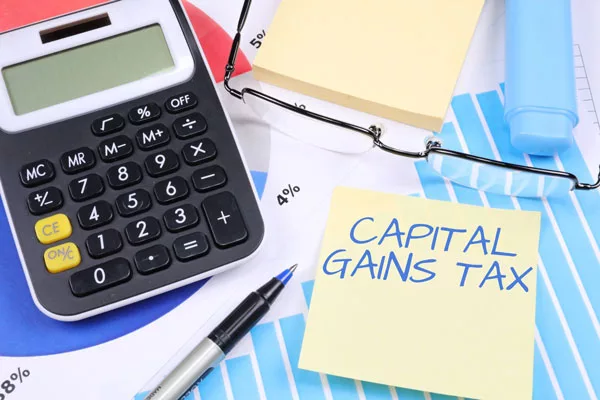Tax-Efficient Investing: The Ultimate Guide for Seniors to Minimize Taxes and Maximize Returns
Table of Contents
Introduction
Tax-Efficient Investing: Why It’s Crucial for Seniors
Taxes are like that annoying neighbor who always shows up uninvited. You can’t avoid them, but you can certainly minimize the nuisance. For seniors, especially, tax-efficient investing is not just a buzzword; it’s a survival tactic.
This guide will help you navigate the labyrinth of tax codes and investment options. Buckle up!
The Basics of Tax-Efficient Investing
Understanding Tax Brackets
You’ve probably heard of tax brackets, but do you know how they work? Think of them as the different levels in a video game—the higher you go, the tougher the enemies (taxes, in this case). Knowing your bracket can help you strategize your investments.
Capital Gains Tax
Ah, the infamous Capital Gains Tax, the Grinch that steals your investment Christmas. When you sell an investment for more than you paid, you owe taxes on the profit. But don’t fret; there are ways to minimize or even avoid these taxes.
Strategies for Tax-Efficient Investing
Tax-Efficient Investing for High Earners
If you’re a high earner, first of all, kudos! Second, you need to be extra careful. Consider tax-free bonds or Roth IRAs to shield some of your income from taxes.
Most Tax-Efficient Investments
From index funds to municipal bonds, some investments are just better at dodging taxes. We’ll explore these options and help you pick what suits you best.
Best Investments for Taxable Accounts
Not all accounts are created equal. Some are tax-efficient by nature, like Roth IRAs, while others, like your regular brokerage account, are tax-inefficient. Choose wisely!
Navigating Brokerage Accounts
Do You Pay Taxes on Brokerage Account If You Don’t Sell?
The short answer is no. The long answer is also no, but with more words. Taxes on brokerage accounts are generally tied to transactions like selling stocks or receiving dividends.
How to Avoid Taxes on Brokerage Account
Ah, the million-dollar question! From tax-loss harvesting to choosing tax-efficient funds, there are several strategies to minimize your tax bill.
The Blogging Opportunity
Ever thought about sharing your wisdom and investment journey? Starting a blog is easier than ever, especially with AI tools that can help you write posts. And hey, it’s a great way to make some extra cash!
Conclusion
So there you have it, folks! A crash course in Tax-Efficient Investing for seniors. Now go forth and conquer those tax codes!
Frequently Asked Questions
What are the best tax-efficient funds for seniors?
Index funds and municipal bonds are generally good choices.
How do dividends affect my tax situation?
Dividends are generally taxable, but some may qualify for lower tax rates.
Can I write off investment losses?
Yes, you can use them to offset gains or even some of your regular income.
What are the tax implications of withdrawing from my investment accounts?
It depends on the type of account. Withdrawals from Roth IRAs, for example, are generally tax-free.
What’s the difference between tax-deferred and tax-free accounts?
Tax-deferred accounts, like Traditional IRAs, allow your investments to grow without being taxed until you make a withdrawal.
Tax-free accounts, like Roth IRAs, are funded with after-tax money, and you won’t owe any taxes upon withdrawal.
How do I choose between a Roth IRA and a Traditional IRA for tax-efficient investing?
The choice often depends on your current tax bracket and expected future income.
Roth IRAs are generally better if you expect to be in a higher tax bracket in retirement, while Traditional IRAs are good for those who expect to be in a lower bracket.
Are municipal bonds really tax-free?
Generally, yes! The interest from municipal bonds is usually exempt from federal taxes and sometimes state and local taxes as well. However, capital gains from selling the bonds are still taxable.
What are some tax-efficient mutual funds?
Index funds and ETFs are generally more tax-efficient due to lower turnover rates. Some specific tax-managed funds also focus on minimizing taxable distributions.
How does tax-loss harvesting work?
Tax-loss harvesting involves selling investments that are at a loss to offset gains in other investments. This can reduce your overall tax liability.
Can I offset my regular income with investment losses?
Yes, you can offset up to $3,000 of regular income with capital losses. Any additional losses can be carried forward to future years.
What are the tax implications of gifting stocks to my grandchildren?
Gifting stocks involves several tax considerations, including gift tax and the cost basis of the stock. It’s best to consult a tax advisor for your specific situation.
How do annuities fit into a tax-efficient investment strategy?
Annuities offer tax-deferred growth, meaning you won’t pay taxes on the earnings until you start making withdrawals. However, those withdrawals are taxed as regular income.
What are the tax benefits of real estate investments?
Real estate offers several tax advantages, including depreciation deductions and the ability to defer capital gains through strategies like a 1031 exchange.
Is it a good idea to convert my Traditional IRA to a Roth IRA?
Converting to a Roth IRA can be a smart tax move if you expect to be in a higher tax bracket in retirement. However, you’ll have to pay taxes on the amount converted.




